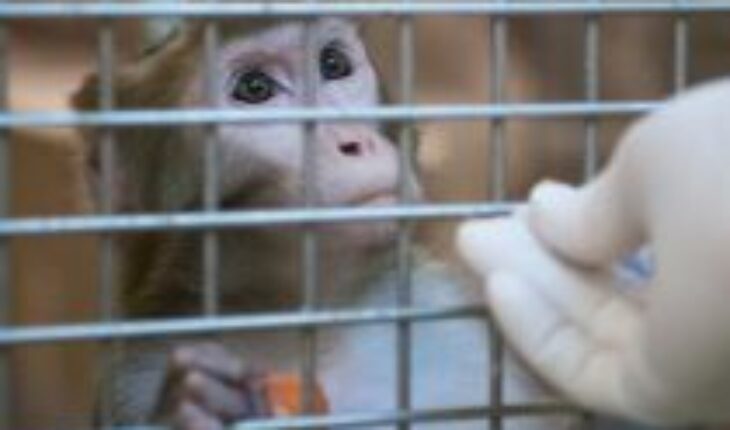Mother monkeys permanently separated from their young sometimes find solace in stuffed toys. This is the recent finding by researchers at Harvard University that has sparked intense controversy among scientists and reignited the ethical debate about animal testing.
The research paper, titled “Triggers of Maternal Love,” was written by neuroscientist Margaret Livingstone and was published by the Proceedings of the National Academy of Sciences (PNAS) in September with little fanfare or media coverage.
Accused of cruel methods
But once news of the summarized study began spreading on social media, it sparked a storm of criticism and eventually a letter to PNAS signed by more than 250 scientists calling for a retraction.
Meanwhile, animal rights groups recalled Livingstone’s earlier work, which included temporarily suturing the eyelids of baby monkeys to study the impact on their cognition.
“We cannot ask for the consent of monkeys, but we can stop using, publishing and, in this case, actively promoting cruel methods that knowingly cause extreme distress” in animals, wrote Catherine Hobaiter, a primatologist at the University of St Andrews, a co-author of the withdrawal letter.
Livingston and Harvard champion the research
Both Harvard University and Livingstone have vigorously defended the research. The author’s observations “may help scientists understand maternal bonding in humans and may inform comforting interventions to help women cope with loss immediately after suffering a miscarriage or experiencing stillbirth,” Harvard Medical School said in a statement.
Livingstone, in a separate statement, said: “I have joined the ranks of scientists attacked and demonised by opponents of animal research, who seek to abolish life-saving research on all animals.”
Such work routinely draws the ire of groups like People for the Ethical Treatment of Animals (PETA), which opposes all forms of animal testing.
Criticism from other scientists
That controversy prompted strong responses from the scientific community, particularly from animal behavior researchers and primatologists, according to Alan McElligot of the Center for Animal Health at City University of Hong Kong and one of the signatories of the PNAS letter.
The scientist said Livingstone appears to have replicated research conducted by Harry Harlow, a famous American psychologist of the mid-twentieth century.
Harlow’s experiments on maternal deprivation in rhesus macaques were considered groundbreaking, but they must also have helped catalyze the early animal liberation movement.
Follow us on





